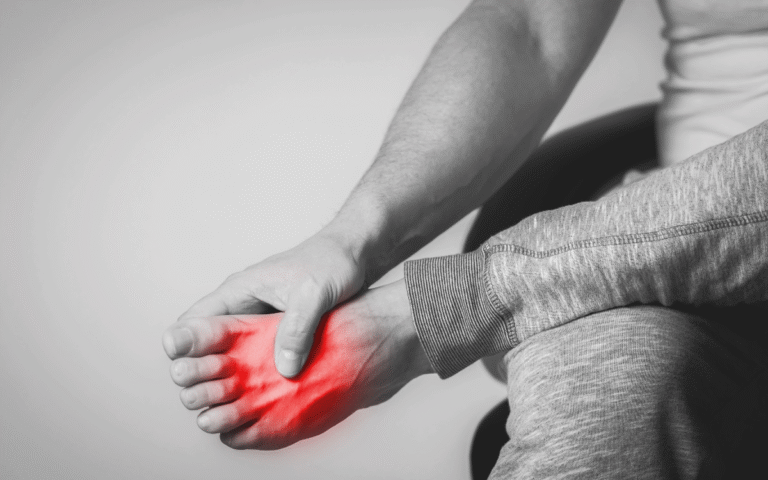The Impact of Poor Foot Care on Overall Health: Why Podiatry Matters
Your feet are the foundation of your body. They support your weight, enable you to move, and play a crucial role in your daily activities. Yet, many people neglect their foot health, often overlooking the importance of proper foot care until problems arise. Poor foot care can lead to significant health issues that extend far beyond your feet, affecting your overall well-being. In this article, we’ll explore the impact of poor foot care on overall health and why podiatry matters for maintaining your physical health.
Why Foot Care is Crucial
The health of your feet is often an indicator of your overall health. Feet are complex structures made up of bones, muscles, tendons, ligaments, and nerves. As the body’s weight-bearing structures, they’re prone to wear and tear, especially if neglected. Chronic pain, improper footwear, or untreated conditions can lead to problems that affect mobility, posture, and even lead to other serious health concerns.
The Connection Between Foot Health and Overall Well-being
When you experience foot problems, it’s not just your feet that suffer; your entire body can be impacted. Here’s how poor foot care can affect your overall health:
1. Posture and Balance Issues
Your feet are the foundation of your body, and when they’re not functioning properly, it can throw off your posture and balance. Conditions like flat feet, high arches, or misaligned toes can cause uneven weight distribution, leading to strain in your legs, hips, and lower back. Over time, this imbalance can contribute to chronic pain, joint discomfort, and even problems with mobility. Correcting foot issues through podiatric care can help restore balance and improve posture.
2. Chronic Pain
Foot pain is one of the most common reasons people seek medical help. Issues such as plantar fasciitis, bunions, hammertoes, or calluses can cause discomfort that makes it difficult to walk, stand, or engage in everyday activities. Without proper foot care, these conditions can worsen over time, leading to more intense pain and even limited mobility. Seeing a podiatrist for early diagnosis and treatment can help manage and alleviate chronic foot pain.
3. Increased Risk of Injury
Improper foot care can make you more susceptible to injuries such as sprains, strains, or fractures. Conditions like weak ankles or poor circulation in the feet can increase the risk of falling, especially in older adults. Without addressing underlying issues, these injuries can become recurrent or lead to long-term disability. Regular visits to a podiatrist can help identify risk factors and prevent injuries from occurring.
4. Impact on Mobility and Independence
Your ability to move freely impacts your independence. Poor foot care can hinder mobility, making it difficult to walk or stand for long periods. Conditions like arthritis, heel spurs, or diabetic neuropathy can cause pain and numbness, limiting a person’s ability to engage in physical activities. When foot problems go untreated, they can escalate and interfere with a person’s ability to perform daily tasks independently. Podiatric care is essential in maintaining mobility and ensuring continued independence as you age.
5. Diabetic Foot Complications
People with diabetes are at a higher risk for foot problems, including poor circulation, nerve damage, and infection. Diabetic neuropathy can cause numbness and reduced sensitivity in the feet, making it difficult to detect injuries or infections. If left untreated, these small injuries can lead to severe complications, including amputations. Regular foot check-ups and proper care are critical for managing diabetes-related foot issues and preventing severe complications. Podiatrists play a key role in monitoring foot health in diabetic patients and providing treatment to avoid long-term damage.
6. Skin and Nail Problems
Foot skin and nail conditions, such as fungal infections (athlete’s foot), ingrown toenails, or corns, are common but often ignored. If left untreated, these conditions can lead to infection, pain, and more serious health concerns. Fungal infections, in particular, can spread to other parts of the body, leading to systemic health problems. A podiatrist can diagnose and treat skin and nail conditions to prevent complications from spreading.
The Role of Podiatry in Foot Health
Podiatrists are medical professionals specializing in the diagnosis, treatment, and prevention of foot and ankle conditions. Regular visits to a podiatrist can help ensure that your feet remain healthy and that any issues are addressed before they become serious. Here’s how podiatry can help:
1. Diagnosis and Treatment of Foot Conditions
Podiatrists are trained to diagnose and treat a wide variety of foot and ankle conditions, from common ailments like bunions and plantar fasciitis to more complex issues like deformities, arthritis, and diabetic neuropathy. Early intervention can help prevent these conditions from worsening and improve your overall quality of life.
2. Personalized Foot Care Plans
Podiatrists provide tailored care plans that address your unique needs. Whether you need custom orthotics for better foot alignment or advice on proper footwear, a podiatrist will work with you to create a solution that fits your lifestyle and health requirements.
3. Preventative Care
Podiatrists play a critical role in preventative care. They can offer advice on proper foot hygiene, footwear, stretching exercises, and injury prevention strategies to keep your feet in optimal health. Regular foot assessments can help detect early signs of issues such as poor circulation or nerve damage, allowing for prompt treatment.
4. Rehabilitation and Recovery
If you’ve experienced a foot injury, podiatrists are trained to assist with rehabilitation. They provide treatment and guidance to help recover from injuries, manage pain, and regain strength and mobility. Podiatrists can also provide post-surgery care for those who have undergone foot or ankle procedures.
Tips for Proper Foot Care
To maintain optimal foot health and prevent issues from arising, consider the following foot care tips:
- Choose Proper Footwear: Ensure that your shoes provide adequate support, cushioning, and room for your toes to move comfortably. Avoid wearing shoes that are too tight or have high heels for extended periods.
- Keep Your Feet Clean and Dry: Wash your feet daily, and ensure that they are thoroughly dried to prevent fungal infections. Pay attention to the areas between your toes.
- Trim Nails Carefully: Keep your toenails trimmed straight across to avoid ingrown nails. If you notice any abnormalities, consult a podiatrist.
- Exercise Your Feet: Stretch and strengthen your feet and ankles regularly. This can help prevent injuries and improve overall foot health.
- Monitor for Changes: If you notice any changes in the appearance or feel of your feet, such as swelling, discoloration, pain, or numbness, see a podiatrist promptly.
Conclusion
Good foot care is essential to overall health and well-being. Ignoring foot problems can lead to serious health issues, including pain, injury, and reduced mobility. By prioritizing proper foot care and seeking regular podiatric treatment, you can maintain healthy feet and prevent complications that affect your overall quality of life. Podiatry matters because it ensures that your feet stay healthy and functional, allowing you to remain active, independent, and free from pain. Don’t wait until issues arise—take proactive steps to care for your feet today!







